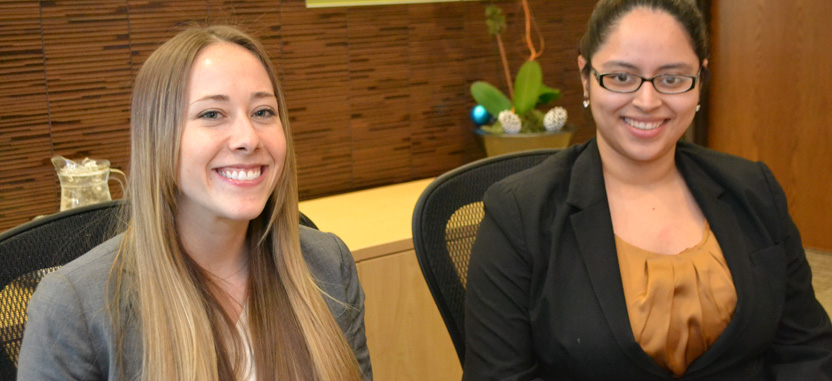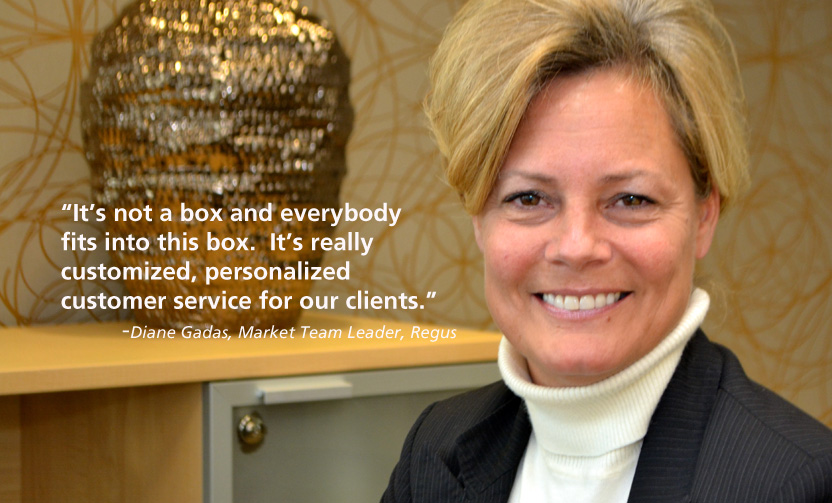How one global company transcends the usual corporate lip-service to deliver brand-defining customer service.
Boardrooms love buzzwords, but buzzwords don’t build brands. One of my least-favorite marketing buzzwords is “customer-centricity.” There’s nothing wrong with the idea – in fact, it’s an essential concept for creating the kind of brand experience that builds trust, loyalty… and business. The trouble is that too many companies pay lip service to the concept of being all about their consumer without paying the real dues of creating a customer-centric culture. So, ever the jaded observer of all things marketing (and all things are marketing these days), I take note of the exceptional occasions when a brand consistently delivers an experience that seems centered on the consumer.
Truly Customer-Centric Case in Point: Regus
A bit of context is required here, as this article is admittedly inspired by a focus group of one. For much of the last 18 years I’ve run my branding-cum-communications-and-content company, Creative on Call, as a virtual organization, with little to no full-time staff or formal office space. I write this as I sit in the “Corporate Content Library of our global HQ,” which is another way to say, my home library-parlor. Skype, email and telephone suffice 90% of the time – but I need to have actual office space available at a moment’s notice, for team or client meetings. To meet that need, I have a basic “drop in” Businessworld membership at Regus, which bills itself as “the world’s largest provider of flexible workspaces.” The membership allows me to rent an office or conference room by the hour or day, or drop in at the business lounge between appointments at no additional charge (decent coffee included).
In my estimation, that occasional relationship does not qualify me as a high-value customer. Nonetheless, each time I show up, if only to use the lounge, and no matter at what center, I am welcomed as if I rent the entire space. I decided to ask Regus just how they do this.
Customer Delight Isn’t a Destination – It’s A Journey
I first interviewed Norm Petersdorf, Vice President, Operations at Regus Management Group, and asked how they translate a corporate commitment to the customer down to the local level. He said: “Our focus is to try and ‘Wow’ our customers. We really just want to exceed the expectations of all our clients. That’s our goal, that’s what we train, that’s what the focus of all our centers are. At the local level we do a training process called the Customer Journey, which is taking people from the moment you become a customer – which is when you say ‘Hey, I need a meeting room,’ or when you show up at a center to use the services. [That’s when] you really become part of our Customer Journey, and that’s a 100% commitment.”
Training Makes It Good, Empowerment Makes It Better
Regus’ Customer Journey is part corporate credo, part comprehensive Internet-based learning. “Our training is all done through an online tool,” said Petersdorf. “It’s the quickest way to get it out to everybody. And there are different levels of that: a level of the Customer Journey, which is the all-encompassing training plan or service plan; then there are different things we send out on a regular basis… handling client inquires or issues… different things we roll out through he tool and support through the local leadership.”
Regus doesn’t believe that mere indoctrination is enough. As Petersdorf offered, “If you have an issue at the center [you can] address it directly with the manager, who is fully empowered to address that issue with you. I think that’s one of the ways we do it right. We give the power and the authority to our centers to resolve those issues, but if they can’t resolve them, then we give them the support through local leadership, through [a field director], through the corporate office. We don’t live on an island where clients can’t get issues resolved.”
Real Customer-Centricity in More than Reactive Customer Service.
I wanted to see exactly how that local empowerment plays out day-to-day, so I sat down with Diane Gadas, a Regus Center Manager in the Chicago suburbs and asked her for an example of local empowerment. Contrary to my assumptions, she did not start with an example of conflict resolution but, rather, customer relationship-building: “Say a new client moves in… some of our services are ad hoc and fee based, so… one of the things [our people are] empowered on is to deliver services on a complimentary basis. If someone [new] requires some administrative work, our Customer Service Representatives are able to provide that service complimentary and then let the client know that in the future there is a fee, so at least the client has the ability to make an informed decision as to whether or not they chose to use that service. That ‘s one of the ways to really be able to empower our CSRs so they don’t have to check with the manager to see if they’re able to do something like that.”
It Isn’t About Process; It’s About People
I asked Petersdorf what differentiates Regus from other companies he’s worked for, in terms of creating a customer-centric experience: “I would say it’s definitely more person-focused as opposed to process focused. So the training goes down to the person level, because at the end of the day, the person who’s answering our phones or managing our centers is the one who’s going to make the greatest impact. And also, from a customer perspective, as we get a lot more virtual clients – and even people who have offices don’t come in every day – the touchpoints become fewer, so you have to make sure you have a bigger impact when you do have them.”
It’s Not Corporation-to-Customer, It’s Person-to-Person
Gadas echoed that sentiment, saying, “The Customer Journey at the local level starts with the new hire. That part is key in our hiring process, finding the right person, the right fit for the company at the center level.” She also emphasized their focus on individualizing the customer relationship, saying, “Every client, every business is different, every need is different. I think that’s where our flexibility and really identifying [with customers] on an individual level comes in. It’s not a box and everybody fits into this box. It’s really customized, personalized customer service for our clients, whether you’re short stay or in a full-time office.”
There Is No “Secret Sauce” to Superior Customer Service
After both interviews I was stuck by two things: First, just as there is no one approach to all customers, there is no secret, overall formula for making a corporation truly customer-centric. Second, that to get beyond lip service and deliver brand-building, value-creating customer service, corporations are wise to:
- Be intentional and committed at the top
- Invest heavily in on-going training and support of your people
- Empower the individuals who are “on the line” with customers
- Communicate well, and continually, both internally and externally
- Consider customer-centricity as a person-to-person posture, not a corporate position
As the aformentioned focus group of one, I can vouch that Regus delivers a consistent, compelling customer experience – one that seems to be all about me. What brands do you have personal experience with that are doing an exceptional job of driving their business by truly putting customer needs at the center of it all? Please leave a comment.

